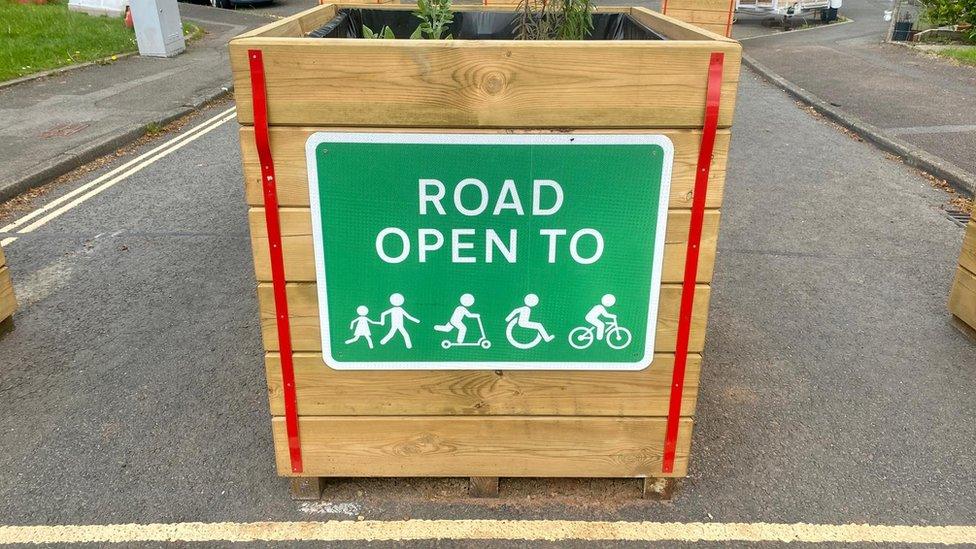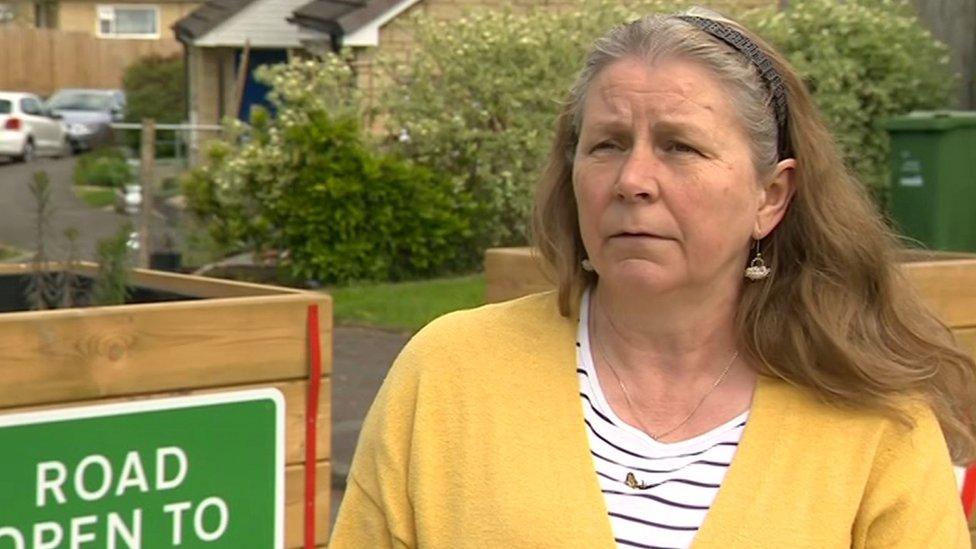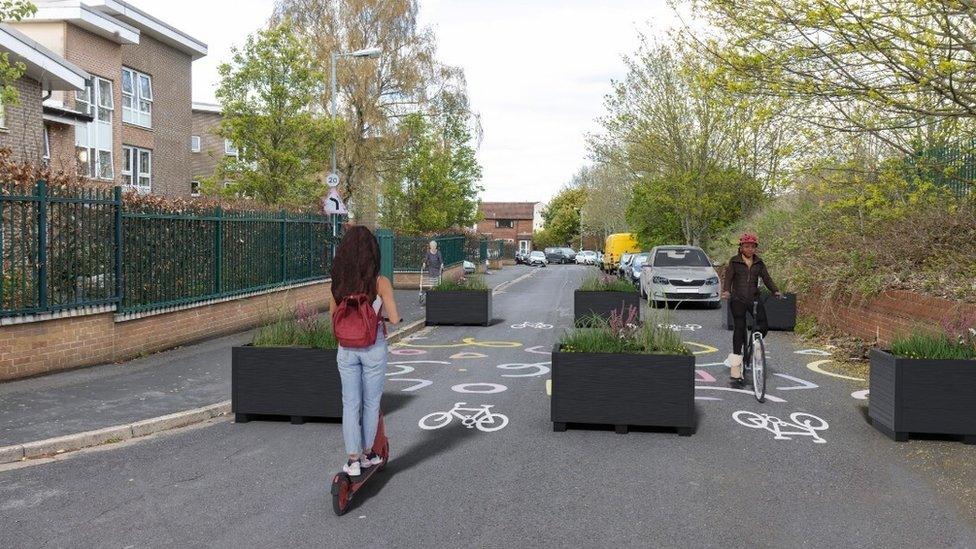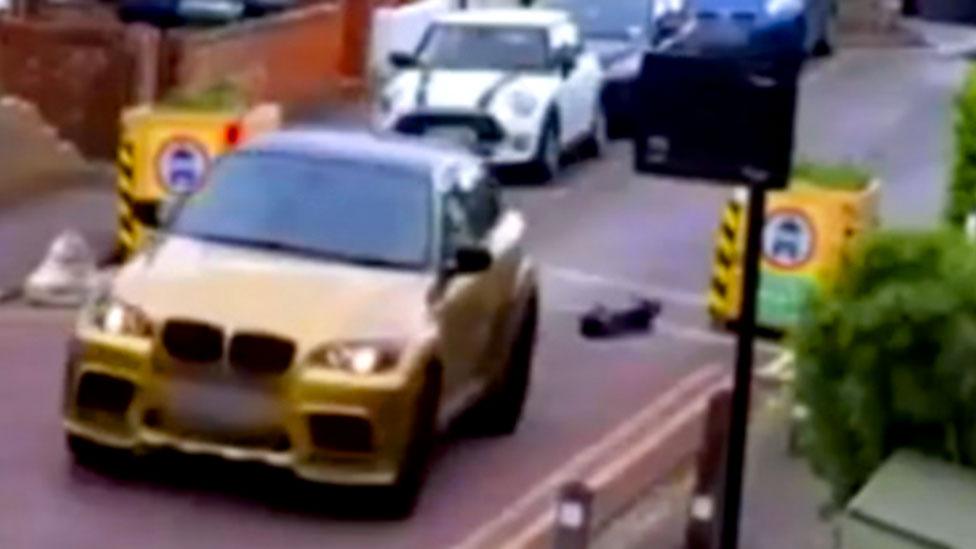Bristol and Bath residents divided over proposed low traffic zones
- Published

Some residents say the LTN zones will create "peace and safety" for children playing in the streets
Residents have been divided and "upset" by new Low Traffic Neighbourhood (LTN) trials designed to make streets safer.
More than two miles of LTN zones have been proposed for East Bristol and some parts of Bath.
Some Bristol residents have welcomed the trials and have said they hope they will reduce pollution, but other fear it could cause problems.
But one Bath resident said it "could be a nightmare" for parents on the morning school run.
"I wouldn't be able to get my son to school," she said.
"So I understand for residents it might be better, but for me personally it would cause a lot of problems."
'Ignored residents' concerns'
Bath resident Angelika Paddock, from Southlands, said the trials where she lives have caused "great divisions" in her community.
Mrs Paddock said she understood what the council tried to achieve with them but fears it "ignored residents concerns".
"Unfortunately it's caused a lot of arguments, I think it was because they were here all of a sudden," she said.

Mrs Paddock said the trial in her community in Bath has caused arguments
"The consultations were minimal at most and done very quickly.
"We have had two ambulance arrive that have been delayed because of the planters."
Other residents living in the same community, such as Guy Hodgson said they felt the trials brought "peace and safety" to their streets.
"We used to suffer from a high volume of traffic and speeding. I've seen many people nearly have a lot of head on collisions here," he said.
"I was concerned someone would get hurt. If people want this removed, how would they feel if there was an incident after that involved someone using this road as a shortcut.
'Breathe cleaner air'
Bristol City Council cabinet Member for Transport, Donald Alexander said the LTN in East Bristol would be "a health intervention".
"We want people to breathe cleaner air," he said.
"We want them to be able to walk and cycle whenever they want, we want children to be able to play in the streets.
"All it means for those who drive cars is that they will have to drive a different route."

Follow BBC West on Facebook, external, Twitter, external and Instagram, external. Send your story ideas to: bristol@bbc.co.uk , external
- Published7 May 2023

- Published17 April 2023
